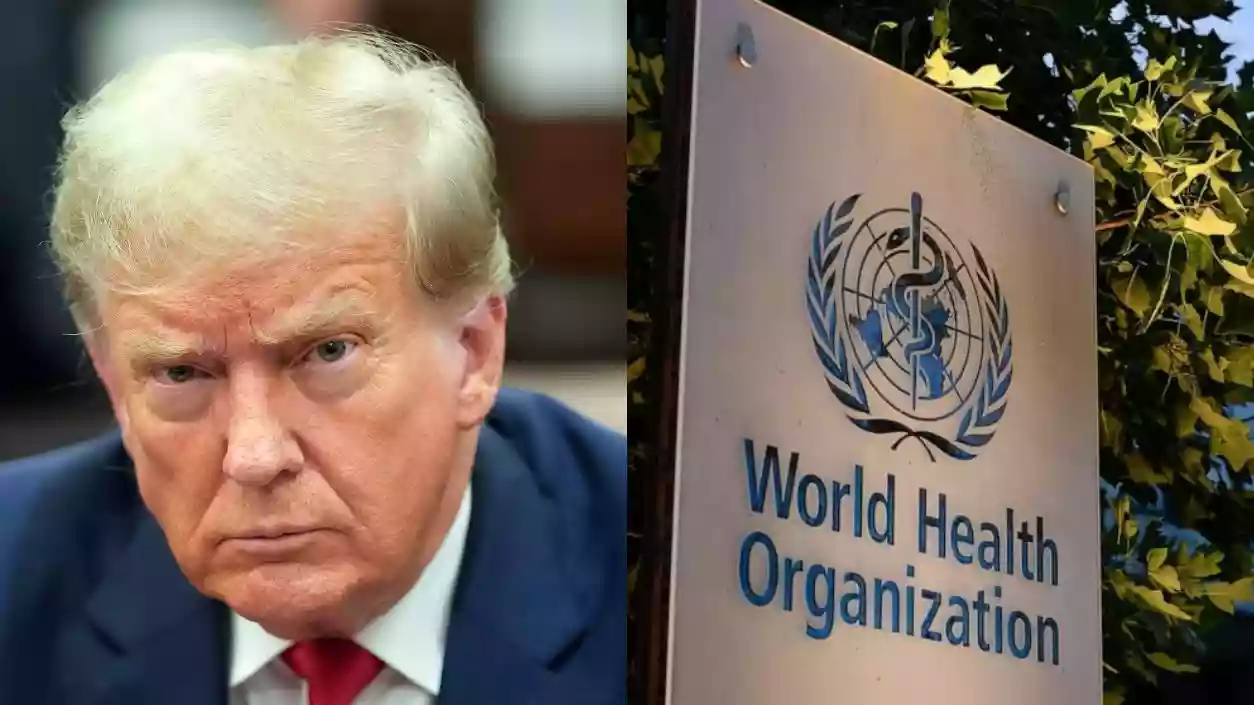Protests erupt outside Kasba Police station as 3 arrested in alleged Kolkata college gang rape
.gif)
.gif)

On January 20, President Donald Trump announced that the United States will withdraw from the World Health Organization (WHO), a decision that had been previously proposed during his first term but not enacted. The US informed the United Nations Secretary-General of its intention to leave the organization, with a formal notification to be processed by July 6. This move follows criticisms from the Trump administration regarding WHO’s handling of the Covid-19 pandemic, with particular concerns over its response to early warnings and the transparency of its communications regarding the virus’s spread from China.
In response to the announcement, WHO issued a statement expressing regret over the decision, highlighting the organization’s role in global health security. The statement emphasized that WHO has been at the forefront of addressing health emergencies, building stronger health systems, and helping with disease prevention, often in areas where other organizations cannot operate. WHO also reiterated the long-standing contributions of the US to global health, including its leadership in the eradication of smallpox and the near-eradication of polio. The US has been a member since the organization's founding in 1948 and has contributed significantly to its budget, making up about 15% of its funding, or roughly $600 million annually.
Experts have warned that the US withdrawal could undermine global health security, especially in areas like pandemic preparedness and antimicrobial resistance. WHO’s ability to respond to health emergencies globally is contingent upon international cooperation and resources, with the US historically providing not only financial support but also political backing for WHO’s initiatives. Dr. Pete Baker, Policy Fellow at the Center for Global Development, expressed concerns that the loss of US support could hamper progress on these critical issues, such as future pandemic preparedness and combating global health threats like antibiotic resistance. While other countries or private organizations may step in to fill the financial gap left by the US, they would not replace the US's significant political influence on health matters.
The US's withdrawal also includes its decision to pull out of the Pandemic Agreement negotiations, which aim to strengthen global responses to future health crises. These negotiations are part of broader efforts to ensure that nations are better prepared for potential pandemics, a key area of focus for WHO in the wake of the Covid-19 pandemic. Experts warn that without the US’s political and financial support, these efforts could face delays or disruptions. The US, as a major contributor to global health initiatives, has been involved in setting the agenda for international health security and coordinating global responses to emerging health threats.
WHO’s work has been particularly vital in helping countries with limited resources, providing technical support, expertise, and coordination during health crises. Countries like India, which rely on WHO’s assistance for vaccine distribution, disease control measures, and public health infrastructure, could face challenges if US support is withdrawn. However, experts note that WHO will not collapse from the loss of US funding alone, as other countries and philanthropies could contribute additional resources. Despite this, the organization could face significant challenges in adjusting its operations and funding models.
WHO remains hopeful that the US will reconsider its decision, as it looks forward to maintaining its longstanding partnership with the US and other member states in addressing global health challenges. The organization has stressed that continued collaboration between nations is crucial for tackling health threats that transcend national borders, including pandemics, non-communicable diseases, and climate change-related health impacts.